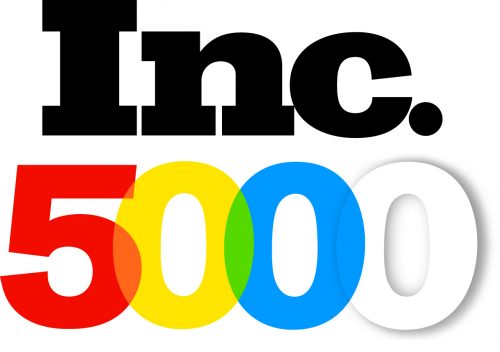Research shows that the average American currently has around $38,000 in personal debt, excluding home mortgages. When you owe that much money, it can feel like a constant weight on your shoulders. The good news? There are myriad debt consolidation solutions designed to help relieve this burden.
Are you considering going this route? If so, it’s important to know what to expect. Read on to learn the key details you need to know before pursuing debt consolidation services.
What is Debt Consolidation?
It might sound like a magic wand, but a debt consolidation solution is far from a quick fix. This is an umbrella term that encompasses a range of options designed to adjust the terms or amount of your debt so you can get back on your feet.
Sometimes, debt consolidation involves wiping away your debt altogether. Other times, it focuses on lowering your interest rate or changing your payment schedule to work more in your favor. In some cases, you might even be able to persuade your creditors to accept less than your full amount owed.
Some of the most common types of debt consolidation solutions include:
- Bankruptcy
- Debt solution
- Debt consolidation
Do any of these options sound appealing to you? Let’s review each one in a little more detail.
Bankruptcy
Do you believe there is no plausible way you’ll ever be able to pay back your unsecured debt (including credit cards, personal loans, and medical bills) within five years?
If so, filing for bankruptcy might be the most realistic solution.
Yet, think twice before you jump in with both feet.
Before you take steps to file, always speak with a bankruptcy attorney first. He or she will be able to tell you whether or not you qualify. If the answer is “no”, you can pursue less drastic measures, including debt solution.
Worried you can’t afford to speak with a lawyer? Initial consultations are usually free, and the advice you’ll receive is invaluable.
If you qualify, you can file for the most common type of bankruptcy: Chapter 7 liquidation. The process, which can take three to four months, can eradicate most of your unsecured debts.
Based on your current income and level of debt, you might qualify for Chapter 13 bankruptcy instead. This is a court-mandated repayment plan that can span three to five years, after which any remaining unsecured debt is absolved.
Though it can be difficult to keep up with the payments for that long, the effort is worth it. Debtors who file for Chapter 13 bankruptcy often face the risk of foreclosing on their home and successfully completing this can help them keep their property.
Points to Note
While this step can help you climb out from underneath a mountain of debt, it isn’t a cure-all. In fact, there are many kinds of debt that bankruptcy cannot relieve. Payments that it can’t erase include:
- Taxes owed
- Child support
- Federal student loan debt (in most cases)
In addition, filing for bankruptcy can negatively influence your credit score. Even as you take steps to restore your good credit, the filing will remain on your credit history for a decade. In this way, it will continue to work against any strides you make.
Think that score is just a number? Think again. A low credit score can affect many aspects of your life, including:
- Your hiring potential
- Your ability to rent or own a home/apartment
- Your car insurance rate
Finally, keep in mind that you can’t make this a habit. Once you file for Chapter 7 bankruptcy, you’ll have to wait eight years before you can file again.
Debt Solution
Rather than absolving your unsecured debts altogether via bankruptcy, debt solution allows you to pay them off under more favorable terms. This often means waiving your penalty fees or lowering your interest rate.
How does it work?
You’ll partner with a credit counseling agency, paying the agency a set amount each month. The agency will then spread that payment out among your various creditors. This setup is made possible due to the professional relationships that credit counselors form with major credit card companies.
Points to Note
While you’re in the debt solution process, most credit counselors will require that you close your credit card accounts. This allows you to focus solely on paying down your debt, rather than add to it.
The only issue?
Closing those accounts can count against your credit score. Thus, while participating in a debt solution won’t necessarily lower your number, that part of it could. Once you’re finished with the process, you’ll be free to apply for credit again.
While many debtors can find help through these types of solutions, there are a few red flags to understand. First, every payment you make to the credit counseling agency will need to be consistent and on-time. If you miss even a single payment, it could be grounds for removal from the plan.
Also, the industry is ripe with credit counseling and debt consolidation scams, requiring you to always be on your guard. That’s why it’s critical to partner with an agency that’s recognized by the National Foundation for Credit Counseling or the Financial Counseling Association of America.
Otherwise, you could fall victim to a debt solution scheme that will leave you even more behind financially than you already were. Be wary of any agency that charges you an exorbitant up-front fee and makes grandiose promises, like vowing to erase all of your debt.
Resolve your Debt
Are you falling behind on your debt payments? Are you limited to only making the minimum payments, looking at an extensive timeline before you’ll be able to get out of the red?
If so, a company who restructures debt can help.
These professionals can contact your creditors and negotiate with them on your behalf. In many cases, they’re able to roll your outstanding debt balances into one monthly payment that you can afford.
While you’re making those payments, you’ll also enjoy better terms than you can find almost anywhere else. Most debt restructuring options operate on a 24-month to a 48-month term, offering 0% interest and $0 upfront fees while you’re still paying off your debt.
Points to Note
While debt restructuring can be a beneficial step toward managing your debts, it does have inherent risk. You’re relying on the debt restructuring company to interface with your creditors and request more favorable terms.
The best case? They agree to the deal, and you don’t owe as much as you originally did.
The worst case? They refuse to budge. At that point, you’ll have an even larger payment (with late fees tacked on), as well as a barrage of other penalties, including:
- Collection calls
- Additional fees
- Legal action
Depending on how much money you owe, the process could drag out for years. Even then, you aren’t guaranteed . That’s why it’s important to read reviews about each company before partnering with one. You want to find a team (like ours) that’s had repeatable success helping clients just like you get back on their feet.
Debt Consolidation
The above mentioned options can offer valuable and viable debt consolidation solutions for a variety of customers. If you’re feeling overpowered by your mounting debt and can’t see a way out, they can be worth checking into.
Yet, for many, debt consolidation is the most preferred and reliable way to gain back their financial footing.
This solution rolls multiple, high-interest debts into one payment, which you’ll pay at an interest rate that’s lower than you’re paying now.
Not only can this lower the total amount that you pay each month, but it can also help you pay down your debts at a quicker pace.
Wondering how it works? There are two main routes to take. Let’s explore each one.
Consolidating Debts with a Credit Card
One way to consolidate your debts is to take out a 0% interest, balance-transfer credit card. Once you open the account, you can transfer all of your debts onto that card.
Then, while the promotional period is still active, you’ll pay off the balance in full.
Consolidating Debts with a Debt Consolidation Loan
You can also find a lender that specializes in debt consolidation loans and request to take out a loan for the amount that you owe.
Then, you can use that money to pay off your debts in full. You’ll pay the lender back in monthly installments until you’ve covered the loan.
While you can also take out a home equity loan or a 401(k) loan to consolidate your debts, keep in mind that you’ll assume some major risks if you do. Defaulting on either of them could put your home or retirement at stake.
Before you go that route, let us help.
When you fill out an application on our site, we’ll quickly analyze it and match you with the debt consolidation solution that’s the best for you, including debt consolidation solutions.
Personal Loan
Even if you’re up-to-date on all of your payments and have an excellent credit score, you can still rack up debt.
If this sounds like you, one of the quickest and most direct ways to pay down that balance is to take out a personal loan or a Line of Credit (LOC).
When you’re approved for either of these accounts, you can consolidate all of your outstanding credit card balances into one monthly payment that carries a lower interest rate than you’re used to seeing.
You’ll save a ton of money on interest when you go this route. Plus, you’ll be in a position to pay your debt down at a much quicker rate. When you pursue a personal loan through Debthunch, you can find LOC rates that begin at 0% interest, in addition to 12-month and 60-month personal loans starting at 4.99% APR.
Want to see debt consolidation offers personalized to your needs? Go here and fill out the form!
Which Debt Consolidation Solution Should I Pursue?
Before you can start browsing your options and exploring each debt consolidation solution on the market, it’s time to look inward.
Bankruptcy, debt restructuring or debt consolidation solutions can be helpful if the following statements hold true:
- You have unpaid, unsecured debt and firmly know that you can’t pay it back within five years, even if you restrain your spending habits.
- You have unpaid, unsecured debt that’s equal to 50% or more of your gross income.
On the other hand, do you think you can pay off your unsecured debts within a five-year period?
In that case, you’re freer to take matters into your own hands. You can pursue a personal loan or a debt consolidation plan that allows you to maintain your good credit standing while making your monthly payments easier to manage.
You can also commit to stricter budgeting in your quest to save as much money as possible during this payback period.
Debt Consolidation Made Simple
When you’re considering a debt consolidation plan, you’ve got your homework cut out for you. In addition to searching for a reputable and accredited lender, you also need to make sure you’re getting the best terms possible for your new venture.
That’s where we come in.
We’ve taken care of the legwork for you, searching through the plethora of debt consolidation options to find the very best ones designed to meet your needs.
Once you fill out an application, we’ll get to work, instantly revealing a solution that meets your timeline and budget, as well as your short-term and long-term spending goals.
Contact us today and let’s take that first step toward financial freedom together.




